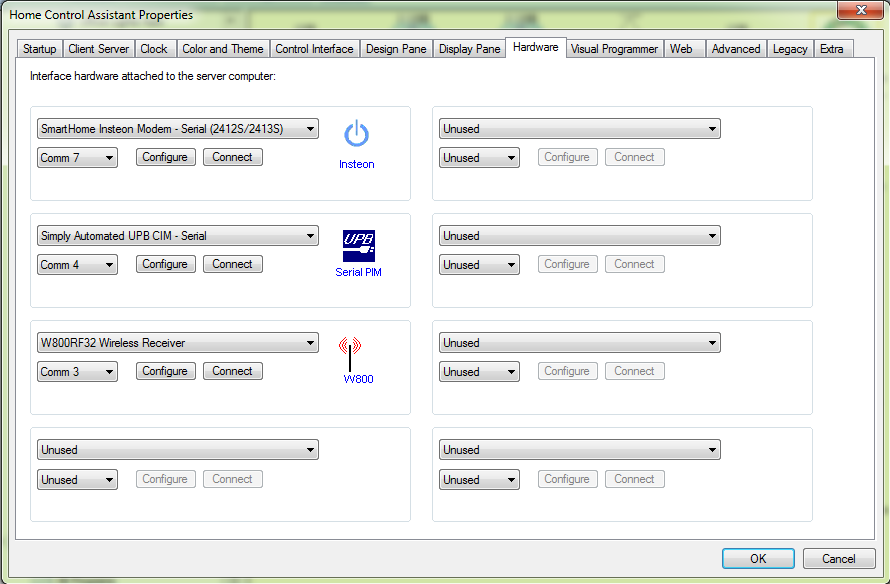kwilcox
Active Member
I currently run X10, X10 Wireless, Insteon, and UPB & just use multiple adapters; each protocol seems to have its best interface it would seem. I'll be putting in the leviton z-wave interface when my Yale door locks arrive. (lol..Picta may have just talked me out of this however)...
I just use a USB hub to connect everything up. In addition to HCA's database of known interfaces, I can essentially support any kind of interface using the "generic USB or generic Serial variants". The latest version lets me connect up to 8.

I just use a USB hub to connect everything up. In addition to HCA's database of known interfaces, I can essentially support any kind of interface using the "generic USB or generic Serial variants". The latest version lets me connect up to 8.

